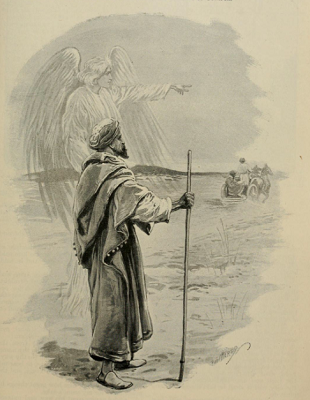November 19, 2004.
A reader of these Insights from Elmira, NY, recently wrote: “First of all, I want to thank you for writing your book. (…) gave me a copy and I read it through in two sittings. Since then I have gone back to read Revelation as part of my daily Bible reading (I have never done that before – ever). But your book makes everything relatively simplified and sensible. Second of all, I took a book about the history of civilization, especially the Middle Ages and the Renaissance out of the library. I never realized how much of man’s history, even as recorded by secular historians, contains so many references to religious beliefs, conflicts, and wars. The two books together have helped me see things more clearly.”
Some Christians say, “The Bible is all we need.” Are they right? It all depends on what they mean. There is a sense in which this statement is true. There is also a sense in which it is false. In the study of many Bible prophecies, for example, the Bible does not have all the information we need. We must frequently turn to sources outside the Bible in order to understand the Bible.
The situation of the Treasurer of Ethiopia in Acts 8 is a good example. While he was reading Isaiah, Philip approached him and asked, “Do you understand what you are reading?” The Ethiopian replied, “How can I, except some man should guide me?” (8:30-31). Some people cite this exchange as proof that a person cannot understand the Bible by himself. These people miss a very important point. The Ethiopian was reading prophecy!
The Ethiopian would not have needed someone’s help to understand “You shall not kill… You shall not steal” (Exodus 20:13-15). A person of average intelligence and normal education can understand much of the Bible by simply reading it for himself.
However, the Treasurer was reading Old Testament prophecy. None of the New Testament had been written yet. Therefore, the fulfillment of that prophecy was outside of the “Bible” then in existence. The Treasurer needed someone who had additional information–someone with historical facts. Philip, using the facts of the life of Jesus, showed how Jesus fulfilled the prophecy.
To understand any prophecy that does not have its fulfillment recorded in the pages of our now complete Bible, we must look for facts outside the Bible. We all need someone like Philip–someone who knows the facts of history that fulfill a particular prophecy. The Old Testament predicts the complete desolation of Babylon. The New prophesies the coming of the “man of sin.” Both Testaments foretell the destruction of Jerusalem after the coming of the Messiah. For all of these and many more prophecies, history outside the Bible records the fulfillment.
Nobody Left Behind; Insight into ‘End-Time’ Prophecies, draws on various historical sources outside the Bible to show the fulfillment of several outstanding Bible prophecies.
